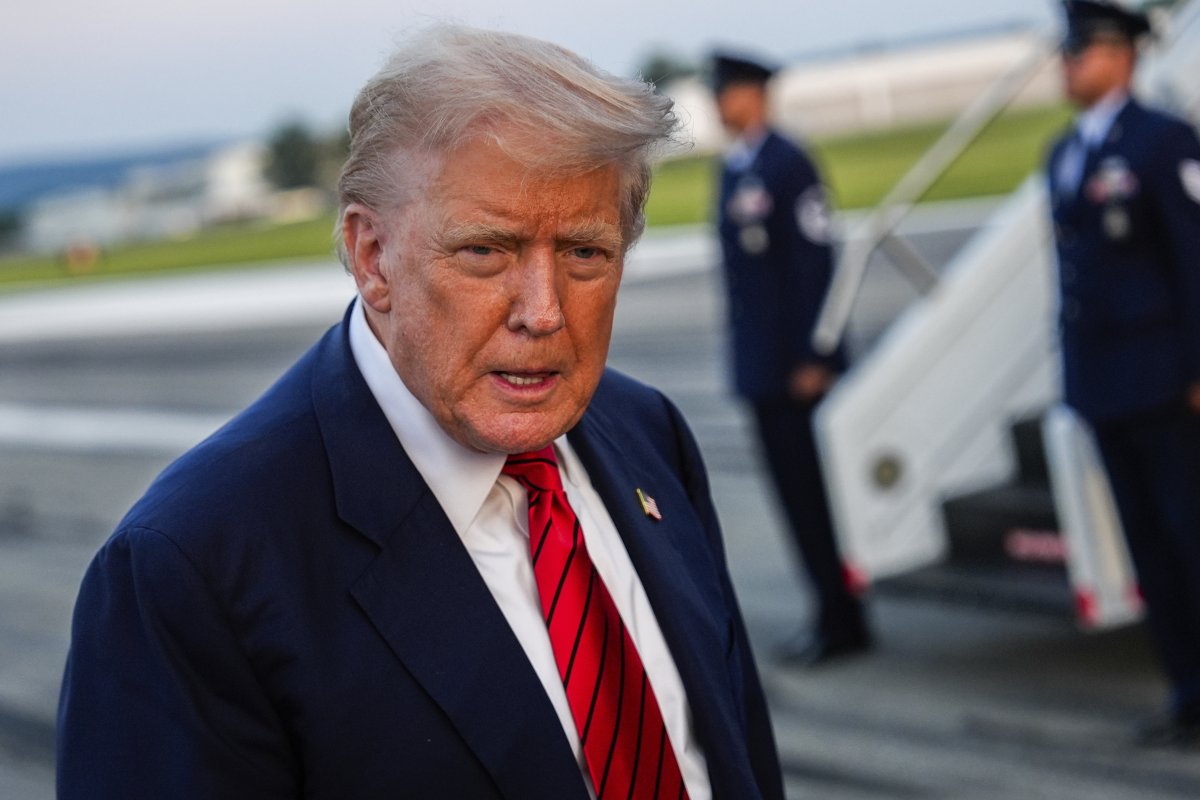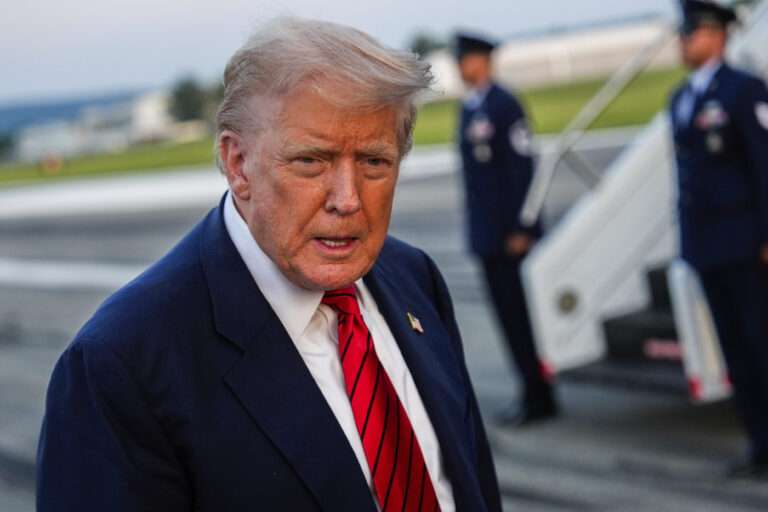President Donald Trump appears to have walked back on a key campaign pledge he made last year regarding in vitro fertilization (IVF), according to a Sunday report from The Washington Post.
The newspaper reported that the Trump administration has moved away from plans to improve access to the reproductive healthcare policy due to legal constraints.
Newsweek could not verify the report and has contacted the White House outside of normal business hours to comment on this story.
Why It Matters
IVF is a key reproductive treatment for women finding it difficult to become pregnant. The White House previously said that it can cost up to $25,000 per cycle and that 1 in 7 couples struggle to conceive.
Trump made a pledge on the campaign trail to cover IVF for all women and couples seeking it, telling NBC News last August: “Under the Trump administration, we are going to be paying for that treatment. Or we’re going to be mandating that the insurance company pay.”
Trump also called himself the “fertilization president” at a Women’s History Month event in March, promising “tremendous goodies” for women.
What To Know
Upon returning to the White House for a second term earlier this year, Trump signed an executive order on February 18 expanding access to IVF and making it more affordable for patients. The order, which addressed the importance of starting families, also directed agencies to safeguard access to IVF and directed his domestic policy council to submit policy recommendations about IVF by May 19.
The executive order came amid growing legal concerns over reproductive rights in the wake of the U.S. Supreme Court’s 2022 decision to overturn Roe v. Wade. That ruling allowed some states to enact abortion bans that, in some cases, threaten access to IVF by defining life as beginning at conception.
It also came amid concerns about falling birth rates in the U.S. The fertility rate is now projected to average 1.6 births per woman over the next three decades, according to the Congressional Budget Office’s (CBO) latest forecast released this year. That is below the replacement rate of 2.1 births per woman required to maintain a stable population without immigration.
As of August, there have been no further updates from the White House regarding IVF policies.
The Post, citing two people with knowledge of internal discussions who spoke on the condition of anonymity to describe private conversations, reported that White House officials said they were still interested in expanding IVF but that there were legal constraints with making it an essential health benefit without congressional approval.
Expanding access to IVF would come at odds with Trump and other conservative’s opposition to the Affordable Care Act (ACA), also known as Obamacare, the insurance plan that allows access to health care.
The Post reported that White House officials are backing away from proposals discussed internally to mandate IVF coverage for the roughly 50 million people on the Obamacare exchanges.
The first Trump administration tried to repeal the ACA. Using it to cover IVF by making it an “essential health benefit” would require insurers in the marketplace to cover it and would lead insurance companies to raise premium costs, which could hurt the GOP in next year’s midterms, the newspaper reported.
Kaylen Silverberg, an outside adviser to the administration, told the Post that the White House had approached him about fertility methods that use holistic health instead of IVF. Silverberg added that officials had asked him about restorative reproductive medicine, a method of treating infertility by improving overall health via lifestyle changes.
Implementing that would fall “very short” of Trump’s initial promises, Silverberg told the newspaper.

AP Photo/Julia Demaree Nikhinson
What People Are Saying
Mark Shanahan, who teaches American politics at the University of Surrey in the United Kingdom, told Newsweek: “On the campaign trail, Trump said what he needed to say in order to win the 2024 presidential election. Being in office is very different. While he has been able to largely fulfil his campaign promises on foreign policy and issues such as immigration and the size of government through Executive Order, mandating IVF availability requires Congressional support, and with tight majorities in both chambers he’s clearly decided it’s a hill not worth dying on.”
Abigail Jackson, a White House spokeswoman told the Post: “President Trump pledged to expand access to fertility treatments for Americans who are struggling to start families. The Administration is committed like none before it to using its authorities to deliver on this pledge.”
What Happens Next?
Whether the White House unveils policies regarding IVF remains to be seen.
Meanwhile, the administration has put forth other policies regarding reproduction. In the One Big Beautiful Bill, health care providers who carry out abortions and receive more than $800,000 in federal reimbursements are banned from getting Medicaid funding for a year.


